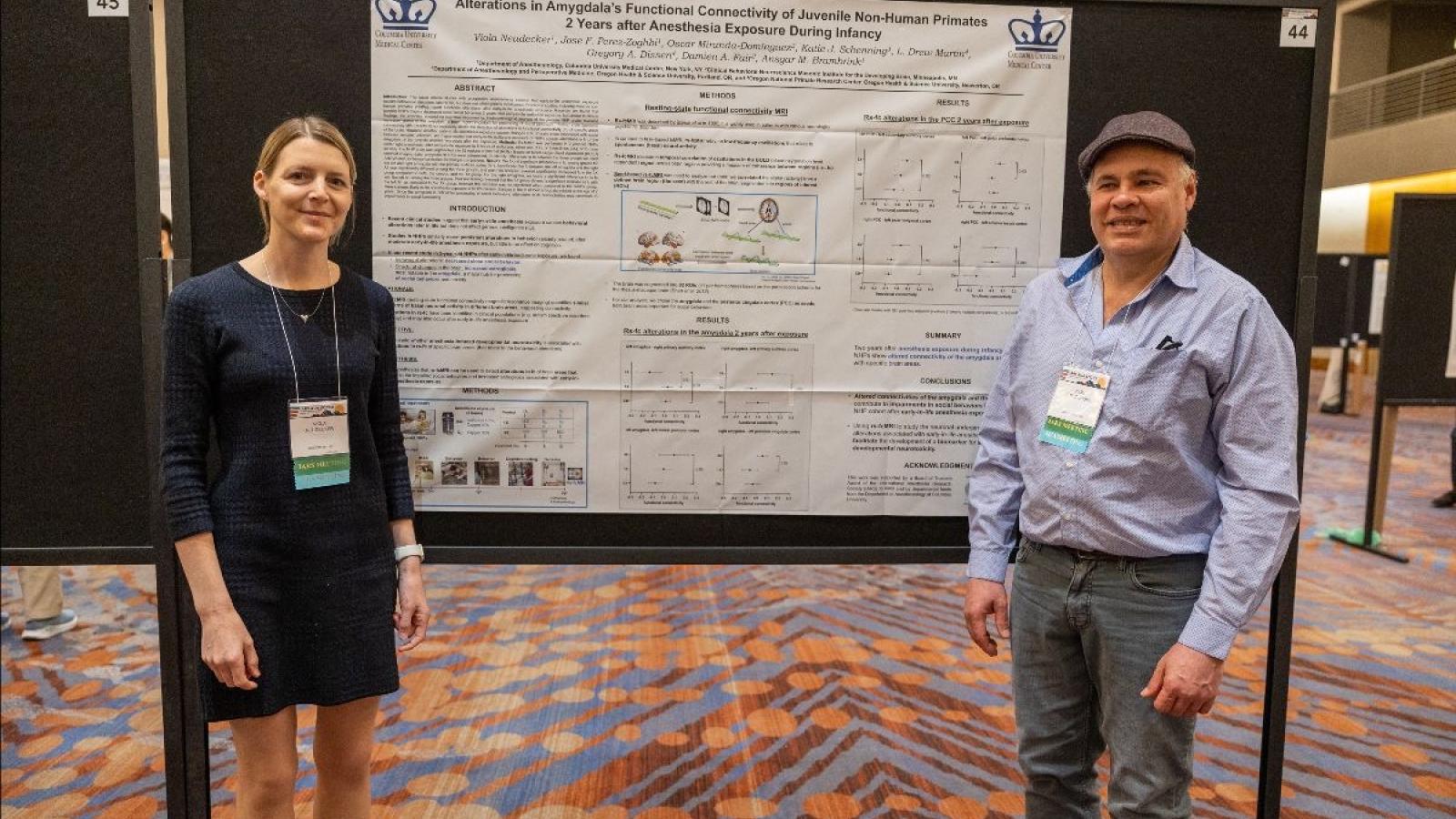Brambrink Lab
Principal Investigator
The Brambrink Lab studies the effects of anesthesia on the brain, in particular anesthesia-induced neurotoxicity in the developing brains of infants and children. The lab’s research addresses the concern about neurotoxic effects of routinely used anesthetics on the immature brain with long-term consequences in the behavioral development of children that were exposed during infancy.
Experimental studies in small animals provide strong evidence that anesthetic exposure early in life causes long-lasting impairments in neurobehavioral development. However, confirmatory clinical studies in the field are very challenging, as most children that require anesthesia at a very early age will have confounding factors such as underlying medical conditions, that make the interpretation of outcomes very difficult.
Using the translational non-human primate (NHP) model in their studies, the Brambrink Lab performs studies in a species closely resembling the human, in regard to its brain structure and development as well as its behavioral repertoire. These NHP studies are performed under conditions that closely resemble those in the pediatric operating room, while excluding ethical concerns and the many confounding factors that clinical studies in young children are complicated with. Latest publications from those studies report histopathological changes in the brain and behavioral alterations in juvenile NHPs two years after exposure to anesthesia during infancy. Future studies of the lab aim to characterize the behavioral phenotype caused by early-in-life anesthesia exposure to guide future clinical studies. And further, to investigate neuroimaging as potential source for non-invasive and specific biomarkers of anesthesia-induced developmental neurotoxicity (AIDN) to help identify children at risk.
In the past, the lab has also investigated the pathophysiology of brain ischemia and treatment strategies, the mechanisms of the brain’s endogenous repair after ischemic stroke, and the alteration of normal nervous system activity after exposure to toxins. Its clinical research has included studies of the effects of modified immune response following severe trauma, techniques for regional anesthesia, and the use of innovative airway devices in pediatric and adult anesthesia.
Video: Associate Research Scientist Viola Neudecker, MD in an educational recording about anesthesia-induced developmental neurotoxicity, produced by SmartTots and the International Anesthesia Research Society (October 2021).
Lab Members
Select Publications
Neudecker V, Perez-Zoghbi JF, Brambrink AM. Does inflammation mediate behavioural alterations in anaesthesia-induced developmental neurotoxicity? Br J Anaesth. 2022 Apr;128(4):602-605.
Neudecker V, Perez-Zoghbi JF, Martin LD, Dissen GA, Grafe MR, Brambrink AM. Astrogliosis in juvenile non-human primates 2 years after infant anaesthesia exposure. Br J Anaesth. 2021 Sep;127(3):447-457.
Neudecker V, Perez-Zoghbi JF, Brambrink AM. Recent advances in understanding cognitive and behavioural alterations after early-in-life anaesthesia exposure and new mitigation/alternative strategies in preclinical studies. Curr Opin Anaesthesiol. 2021 Aug 1;34(4):402-408.
Neudecker V, Perez-Zoghbi JF, Coleman K, Neuringer M, Robertson N, Bemis A, Glickman B, Schenning KJ, Fair DA, Martin LD, Dissen GA, Brambrink AM. Infant isoflurane exposure affects social behaviours, but does not impair specific cognitive domains in juvenile non-human primates. Br J Anaesth. 2021 Feb;126(2):486-499.



